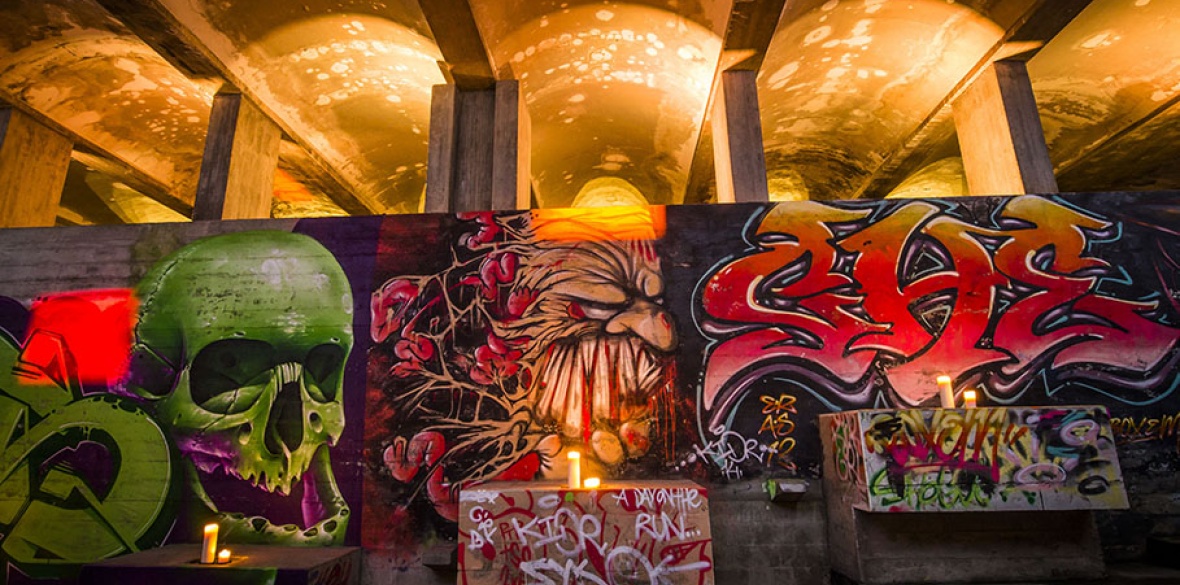This is the last article you can read this month
You can read more article this month
You can read more articles this month
Sorry your limit is up for this month
Reset on:
Please help support the Morning Star by subscribing here
THE situation for the arts continues to get bleaker as Scotland and Wales have added another nail to their own proverbial coffins.
Last week the Arts Council of Wales (ACW) announced its list of organisations that would receive conditional grants, allocating a total of almost £30 million funding from Welsh government and the National Lottery.
The dropping of Mid-Wales Opera and National Theatre of Wales from its list was alarming as they have been vital stepping stones for Welsh artists to get their work tried and tested.
Now the choice for young opera singers, writers or theatre directors seems to be to leave Wales to hopefully return, or stay in Wales and see fewer and fewer opportunities.
Last month, it also emerged that Creative Scotland had had an earlier £6.6m cut to its budget reimposed.
The cut had been reversed earlier this year after campaigning from within the sector, but is was reintroduced in the autumn budget.
Chief executive of Creative Scotland Iain Munro detailed the predicted implications of the cuts, as well as highlighting how the organisation is attempting to address this sudden shift.
What became clear is Creative Scotland, thanks to reserve funding, was able to plug the financial gap, but only as a one-off to support 119 organisations this year.
But the uncertainty created could see 900 jobs lost and have a knock-on impact on some 12,000 artists, Munro told the culture committee at Holyrood.
SNP Cabinet Secretary for Constitution, External Affairs and Culture Angus Robertson continues his empty words and, in an article for The Herald, simply parroted lines about how public-sector workers have seen a greater increase of pay than in England — which he said was part of the reasoning for the reimposition of the cuts.
Scotland’s many trade unionists will know these lines are a con, as many of these pay increases are spread over two years, making them lower in real terms than for many other public-sector workers in England and Wales.
In the same article, he cited the issues of Brexit and the austerity politics of Westminster as other contributing factors.
However regardless of Brexit the current proposed cuts would destroy the cultural sector in Scotland as many artists would simply up sticks and move to where work is — or if they could afford it, simply travel to work elsewhere, while living in Scotland, leaving artists more aloof and distant from Scotland.
The Scottish government’s eagerness to pass austerity on to Scotland’s residents while continually passing the buck onto councils or Westminster demonstrates more of its frank cowardice and disconnect from reality.
I know many artists in Scotland, of all stripes and disciplines, are pro-independence, however because of dreams of an independent Scotland, many have kept supporting the spin of the SNP.
The reality is that the SNP simply has no use or vision for culture. It has been very eager to celebrate artists who speak out for an independent Scotland, but it hasn’t the decency to make sure that Scotland has an infrastructure for the arts to grow.
Much like Nicola Sturgeon’s tone-deaf celebration of Scottish authors while closing libraries, the current Scottish government is going to keep showing off artists who agree with them, while salting the earth that would have helped Scotland’s cultural sector to grow organically.
The Tories despise the Arts Council, as they resent giving the ordinary public anything they cannot make profit from. But at least they have the decency to be upfront about it.
What Scotland — and Britain as a whole — needs is a political vision of what our cultural sector should looks like — looking at how the arts are spread geographically so we have access to arts as far north as Thurso and Shetland, and as far south as Land’s End; making sure artists are paid suitably for their work and talents, but also ensuring it is a sector that doesn’t just favour individuals with wealthy parents; sharing the plethora of talents to the world, but also allowing our talented artists to sustain themselves. Sadly, we lack this entirely from any political organisation.












